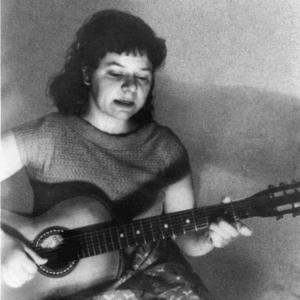How long do budgies live at home? How long do budgies live in captivity and what factors influence their life expectancy? Factors for the long life of budgies
One of the most important questions that those who are thinking of purchasing a budgie are looking for answers to is “What is its lifespan?” After this amazing bird comes to your home, some time will pass and it will adapt and get used to you. You, in turn, will get used to it. In the end, you will become real friends. And, of course, you want your feathered friend to be with you as long as possible. For this to happen, you need to not only know how long a budgerigar lives on average at home or in captivity, but also take into account the factors that affect the life expectancy of a pet. In this article, I will tell you about the life span of wild and domestic budgerigars and how to make sure that your friend lives as long as possible.

How long do budgies live in the wild?
In their natural habitat (namely, Australia), these birds live a relatively short time. Typically, their lifespan in such conditions is from 4 to 6 years. Sometimes a parrot can live longer - up to 8-10 years in the wild, but this is rather an exception to the rule. Unfortunately, in the wild, a lot of budgerigars simply die. Why does this happen? There are several reasons:
- starlings fight with budgies for territory (interestingly, the former were brought to the mainland by humans);
- they are hunted by predatory animals and birds;
- sometimes they have to fly vast distances to find food and water;
- parrots cannot always find food for themselves, sometimes they have to starve;
- dry seasons and rainy seasons also negatively affect the life expectancy of birds;
- people set traps in their gardens and fields;
- Some reservoirs have contaminated water.

The good news is that budgies have very good immunity and they repopulate within a short period of time.
Average life expectancy of budgerigars at home
What can I say, in captivity, under the caring supervision of people, the lifespan of these amazing creatures is much longer than that of their relatives living in the wild. Pets that are tamed to live in a comfortable apartment or comfortable house are not afraid of any falcons or hawks, they do not need to fight with starlings. In addition, they are not tormented by thirst, hunger and heat. Pets require care. And, naturally, the owner must create favorable conditions for his bird to live: feed it well, water it, and let it fly freely around the house. Otherwise the parrot will not last long. After all, this largely determines how many years your budgie will live at home (in a cage).

If you take responsible care of your winged pet, then its lifespan in captivity will be 5 – 10 years(this applies to both boys and girls, that is, both males and females). There are also those who are able to live to a much older age, thereby delighting their attentive owners. There are even examples of cases where domestic budgies, with proper care, lived longer than 20 years. And that's great! Of course, this age is a difficult period in the life of a bird, since the years take their toll, and old wavy birds can no longer hear and move as well as in their younger years. Nevertheless, the owners of such birds are, of course, glad that their faithful winged friend is next to them.
What factors influence the lifespan of budgerigars at home?
The lifespan of budgies depends on several factors.
Genetics
There are more and more people wanting to bring such a bird home. Due to their great popularity, everyone began to breed budgies. That is, even those people who know nothing about selection. This led to the fact that the birds began to develop diseases that were congenital in nature, which greatly shortened their lifespan.
Accommodations
This factor includes many things. So, for example, in order for the life of a poultry to be as long as possible, your answers to the following questions need to be correct from the point of view of safety and comfort of living conditions. What cage did you put your parrot in? Where is the cage located (near heating devices, where the wind constantly blows, in the kitchen, etc.)? What is the lighting and humidity of the room in which the cage is located (the pet is located)? What is the room temperature? Is the temperature always maintained at a constant temperature? Is the cage cleaned in a timely manner? Do you take care of your parrot’s hygiene (do you bathe it, trim its beak and claws on time)? The parrot should have enough food and drink. Do you make sure that your feathered friend always has fresh water and food?

Food quality
In order for your budgie to live longer than the average representative of the breed, it is necessary to feed it correctly. A pet's diet should consist of properly balanced substances vital to the bird's body. Otherwise, the parrot will have a weakened immune system and will get sick often. Typically, poor nutrition leads to gastrointestinal disorders, and the budgie develops tumors and excess fat.

Physical form
An important factor influencing the life expectancy of a budgie is its physical form. In order for everything to be okay with her, it is necessary to provide the parrot with all the necessary devices for the proper development of its body. For example, install perches, swings, ladders and the like. In addition, it is very important to release the parrot so that it can fly freely around the room. This is a must!

Communication, stress
Communicate with your pet, give him special attention, play with him, let him fly outside the cage, become his best friend. Then your budgie will see that you care about him. He will not worry, he will not become an aggressive parrot. He will have good psychological health and, as a result, he will live longer.
If you are close to your winged pet, then he will not be afraid of any sounds, rumblings, repairs, conversations of guests, etc. If he is with you, he will feel safe. However, not all owners can work with their parrot every day, even for some time. A lot of worries can befall someone. In such a situation, you should place some neighbor or partner with the bird. Since no pet can survive the feeling of loneliness and melancholy. When your parrot has another good friend in the house besides you, you don’t have to be afraid of any melancholy. And the life expectancy of your winged friends will be longer in this case.

Safety
Follow safety rules. The room must be completely ready for the budgerigar to live and walk around. Make sure the windows are closed when you let your bird fly. To protect your pet from unexpectedly falling into the clutches of a predator, make sure that a cat or any other pets do not run into the room. Make sure that the parrot does not have to breathe in harmful odors. Remove plants that pose a danger to your pet. Avoid exposed wires. That is, you need to follow all safety rules, provide for everything so that nothing poses a danger to the life of your budgie.

Light mode
In order for your winged pet to live comfortably, it is important to provide it with the correct light regime. In their natural habitat, budgerigars go to bed at nightfall and wake up from sleep at dawn. For parrots that live at home or in an apartment in a cage, it is also vital to provide a similar light regime. Then the bird will get enough sleep and eat the required amount of food.
In summer, budgies should stay awake for 14-15 hours; in winter, their waking time should be reduced by 3-4 hours. To control this, at the right time, when darkness sets in, turn off the light. If circumstances at home do not allow this to be done, cover the cage with thick fabric. In this case, the fabric must allow air to pass through.
If your parrot sleeps during the day, do not disturb him. He's probably tired and gaining strength that way.
Veterinary assistance
Parrots can have various diseases. Therefore, consult your veterinarian from time to time regarding the physical condition of your winged friend. If you even slightly suspect that your budgerigar has some kind of disease, immediately contact a specialist. Only in this way can you get timely advice, save your pet from possible complications and prolong his life for many years.
Be aware of these conditions that affect the lifespan of budgies. Provide your bird with proper housing. I wish your budgie to live long and bring joy to its owner.
I hope that this information was interesting and useful to you. If you can add something to the article, please write about it in the comments.
Pets quickly become real family members, so the owner wants them to stay close as long as possible and be healthy. The lifespan of budgerigars largely depends on the conditions of their cage, nutrition and owner responsibility. Often the cause of death in birds is not illness or old age, but neglect, since they need constant attention.
Life in natural habitat
The birthplace of budgerigars is Australia. There they live in huge groups, communicating with relatives and flying freely, which is often impossible for domestic birds. However, there are many dangers in the wild, including predators, poisonous plants, diseases, etc.
Also, budgerigars are a real disaster for Australian farmers. The birds destroy crops at high speed, so a tough fight is being waged against them. Under these conditions, birds often do not survive even to a year, and the maximum life expectancy is 8 years .
Life expectancy at home
At home, parrots live noticeably longer. They manage to avoid many dangers around humans, but even in captivity accidents occur, so it is recommended:
- Monitor your pet during walks, remove plants, water containers, and sharp objects from the room where he flies.
- Cover mirrors - budgerigars do not understand that this is a reflection and not another room, so they can get injured.
- Isolate from other pets that also pose a danger to the bird.
If the rules for keeping budgies are followed, they live an average of 10 years. Some long-livers delight their owners for up to 20–25 years, but such cases are rare.
A number of factors influence a pet's lifespan:
| Factor | Influence |
| Heredity | When purchasing, you should pay attention to the pet’s parents. If possible, a good option would be to choose a bird from a trusted breeder, since genetics greatly influence its health |
| Floor | There is an opinion that boy parrots live longer than girls. This is due to the fact that frequent clutches negatively affect the female’s body. However, no precise studies have been conducted on this topic. |
| Pair | Many people wonder whether parrots live longer with a partner than without one. There is no direct dependence, but if you do not pay a lot of attention to a pet without a relative, then stress and illness are inevitable |
| Nutrition | Improper nutrition can lead to the death of a pet. It is important to choose quality food and not forget about fresh fruit. Excess food has a negative impact on your pet - obesity causes health problems, reducing life expectancy many times over. |
| Movement | Parrots need daily flights, so it's a good idea to prepare for some disruption around the house. |
| Conditions in the cage | The parrot's cage should be warm, but not stuffy. It is important to choose the right place - at eye level, without drafts and direct sunlight, but sufficiently lit. Another important factor is cell size. The bird must be able to at least spread its wings freely. Daily cage cleaning is equally important. |
| Daylight hours | Daylight hours are important for parrots. During long winter nights, it is imperative for them to turn on the lamps and turn off the lights in the evening, allowing the pet to sleep 8–10 hours a day |
| Safety | Many ordinary things are dangerous for a parrot, from a forgotten cup of water to an open window. It is important for the owner to study the rules for bird safety when walking. It is worth protecting it from strong odors. Cigarette smoke, aerosols and fumigators are harmful to her. |
| Veterinary assistance | If a parrot gets sick, the disease develops quickly. It is worth finding out in advance where a veterinary clinic with a good ornithologist is located. An ordinary veterinarian most often does not have the necessary qualifications to treat birds. |
They are one of the most common pets. Their popularity is explained by their low cost, ease of care, and the love of children. These cute bright creatures often cheer up not only our children, but also ourselves.
Before you get a pet, you need to know how to care for them. And often at this stage the question also arises - how long do budgies live at home? This is important because he will become a member of the family.
Lifespan of budgerigars at home
It must be said right away that at home, budgies live longer than in their natural habitat. In the wild, they die due to lack of food, diseases, and during the fight against enemies. There, the average life expectancy of budgerigars is only 4 years. But at home, surrounded by human care and food supply, they can live 10-15, and sometimes even 20 years.
The record holder for life expectancy among parrots in captivity lived for 21 years. So, it all depends on you - provide your pet with a balanced diet, no stress, regular walks, and he will become a new long-liver.
Factors for the long life of budgies
So, what determines the life expectancy of budgerigars at home? First of all, from proper nutrition. It should be balanced, varied, regular.
A parrot's diet should contain all the vitamins and minerals necessary for life. The daily intake of special dry food is 2 teaspoons. In addition, you need to give them fresh food: lettuce, fruits and vegetables. And also cottage cheese, boiled eggs, calcium (chalk). All this food diversity directly affects the lifespan of budgerigars. Don't forget to also change the water in the sippy cup regularly.
It is equally important to provide your pet with optimal temperature and light conditions. Parrots should not freeze - after all, they come from hot countries. At night, they need to be provided with peace and shade, that is, cover the cage with cloth.
As for the cage itself, it should be quite spacious. The required size is determined by the full wingspan + another 10-15 cm. The cage needs to be equipped with several perches (perches) and a play area (mirror, bell, rattle). From boredom, a parrot can become depressed and even get sick, which certainly will not prolong its life.
Do not place the cage on a window to prevent the parrot from passing through. In addition, if the heating radiator is located close to it, it may suffer from dry air. The ideal place for a budgerigar's house is the bright part of the room near one of the walls.
Parrot health as the basis for a long life
First of all, you initially need to try to select and buy a healthy bird. You can visually distinguish a healthy parrot from a sick one, even without much experience in poultry farming.
Parrots molt periodically, and during this period they do not look very attractive.  But if at the same time you see that the bird is active, moves a lot, eats well, this means that it is healthy. But if the seller says that the parrot is just molting, but at the same time you see that he has no interest in toys, food, and looks weak, you should not buy him, because most likely the parrot is simply sick.
But if at the same time you see that the bird is active, moves a lot, eats well, this means that it is healthy. But if the seller says that the parrot is just molting, but at the same time you see that he has no interest in toys, food, and looks weak, you should not buy him, because most likely the parrot is simply sick.
The state of health of a bird can be determined by other signs. If your pet has shiny eyes, wings fit tightly to the body, movements are smooth, he has a good appetite and a cheerful mood - he is completely healthy.
Dry feathers, dishevelment, and lack of appetite indicate the presence of a disease, and you urgently need to contact a veterinarian if you want to extend his life by a few more years.
Budgerigars live on average 3-4 years, rare individuals cross the line of 5 years. Such a short life expectancy is due to the many dangers that await a small bird in the wild, as well as a lack of food. Budgerigars can live up to 15 years. Of course, this is only possible with proper care - timely treatment of diseases, provision of a balanced diet, protection from drafts and sudden temperature changes, and absence of stress.
The effect of stress on the lifespan of parrots
Most caring owners cope quite successfully with the treatment of diseases and proper nutrition of parrots. However, many people have problems protecting themselves from stress in a city apartment. Firstly, it is difficult for birds to adapt to human biorhythms. In nature, parrots fall asleep at sunset and wake up at dawn. In conditions of electric light and television until twelve at night, birds become nervous. Secondly, budgies are often stressed by other pets, especially dogs and rats. A frightened bird becomes nervous and loses its feathers. Some individuals may even die as a result of stress, especially if the parrot was suddenly frightened.
Dangers of budgerigars at home
A considerable number of birds die not from old age, but because of the carelessness of their owners. Among the reasons leading to the premature death of a pet, the most common is an open window. If a parrot flies outside, it is rarely possible to catch it. The bird, accustomed to living in an apartment, simply dies.

Some budgerigars die due to chewed electrical wires. Sometimes birds crash to death on glass or. Therefore, before letting your budgie fly around the room, you should close the curtains and hang the mirrors.

Some indoor plants also pose a danger to birds. Poisonous to parrots are azalea, hyacinth, dieffenbachia, laurel, ivy, philodendron, amaryllis, poinsettia, crocus, hydrangea, anthurium, spathiphyllum, spurge, ornamental pepper and yew tree.

Long-lived parrots

Some budgerigars can live 20 years or more. However, such long-livers are not very common. Old parrots have deteriorating hearing and vision, but they remain active. Instead of thin poles, it is better for older birds to use small boards, since old parrots often have pain in their paw joints.
Surely every person, before getting a feathered pet, spends a lot of time collecting information about parrots (keeping conditions, care, feeding, etc.). Not least important is the question of how many years these birds live.
The lifespan of these exotic birds is primarily influenced by their species. When it comes to budgies, which are small parrots, they live an average of 10-15 years. Larger varieties live longer (about 20-30 years). However, under favorable living conditions, parrots can live up to 60 years.
How long do budgies live?
Budgerigars are the most common species in Russia. A distinctive feature of these exotic birds is their talkativeness. Some individuals even know how to understand their owners and respond to them. Experts note that the lifespan of budgerigars in their natural environment is no more than 10 years. At home, the life expectancy of this species is 10-15 years. Some birds live up to 20 years. The record holder is a parrot that lived for 21 years.
Budgerigars living in the wild must constantly look for food and hide from predators, which abound in the latitudes where they live. This is why their lifespan is so different from that of domestic parrots. Birds living in apartments, although their freedom is limited, are always safe and comfortable. Given good care and nutrition, they live three times longer than their “free” counterparts.
Any experienced owner of a feathered pet knows that proper care means a balanced diet (birds should receive a sufficient amount of necessary elements, but not in excess), the absence of stressful situations and regular exercise (walks to improve health). Which can be quite difficult to provide. For example, the biorhythms of humans and parrots are very different. Feathered pets should go to bed when it gets dark and wake up at dawn. If a bird is under the influence of constant electric light and extraneous sounds, then it is in a state of regular stress, which negatively affects the health of the feathered pet. In addition, if there is a cat in the house, the parrot will have virtually no opportunity to get out of the cage.
What affects the lifespan of budgies
As already mentioned, life expectancy depends on the type of parrot. If it comes specifically to budgies, then their life expectancy will depend on how well balanced their diet is, the optimal temperature and light conditions, and the cage (it should be spacious and equipped with toys and a feeder). In addition, caring owners should monitor the health and emotional comfort of their pet. Parrots can get sick if they are not given attention and care.
Some people believe that parrots need to be given conditions similar to their natural habitat and fed the same things they eat in the wild. However, many species of parrots are bred in captivity, so such care may not always be favorable for them. It is better to check with a specialist what will be best for your feathered pet.
How to choose a healthy and young parrot
Constant stress has an extremely negative effect on birds. They often get sick, lose their plumage, become aggressive and nervous. If a parrot becomes bald over time, then inexperienced owners think that this is due to age, although, most likely, he is simply intimidated, since budgerigars practically do not change with age. Therefore, when buying a young parrot, you need to pay attention to its eyes. If they are black, it means it is a young pet. In adult birds, only the pupils remain black. In addition, the chick has a black spot on its beak, which disappears with age.
Also, unscrupulous sellers may offer to buy a flightless bird, due to the fact that the chick is still young and has not learned to fly. But this is a hoax, the fact is that budgerigar chicks learn to fly very quickly. As soon as their flight feathers appear, parrots take to the air, because their survival in the natural environment depends on this.
A short tail is not an indicator of the bird's age, since during the molting period it falls out and is replaced with a new one. A sick bird is easy to distinguish from a molting one. Their body is covered with small needles, which will eventually turn into wings. In addition, during the molting period, parrots remain active and do not lose their appetite. If the individual looks weak and shows no interest in toys, then you should not buy it. Most likely, you will soon have to choose a new pet.
What to feed your budgie
It is important to know that birds have the highest body temperature among other animals (40-42 degrees). Therefore, their metabolism is fast. They constantly need to replenish their supply of important microelements and nutrients.
The main food for this type of parrot is a grain mixture consisting of wild and cultivated plants. But grains alone are not enough to provide your pet with all the microelements, so you should give him additional mineral feed.
In addition, budgies need proteins and fats. To do this, they can be given boiled chicken eggs. The diet should also include fruits and vegetables (apples, kiwi, bananas, berries, carrots, cucumber, pumpkin and zucchini).
By providing your feathered pet with comfortable living conditions, proper nutrition and care, you can extend its life for many years. And, in turn, he will delight his owners and others with a good mood and chatter, for which this type of parrot is famous.







